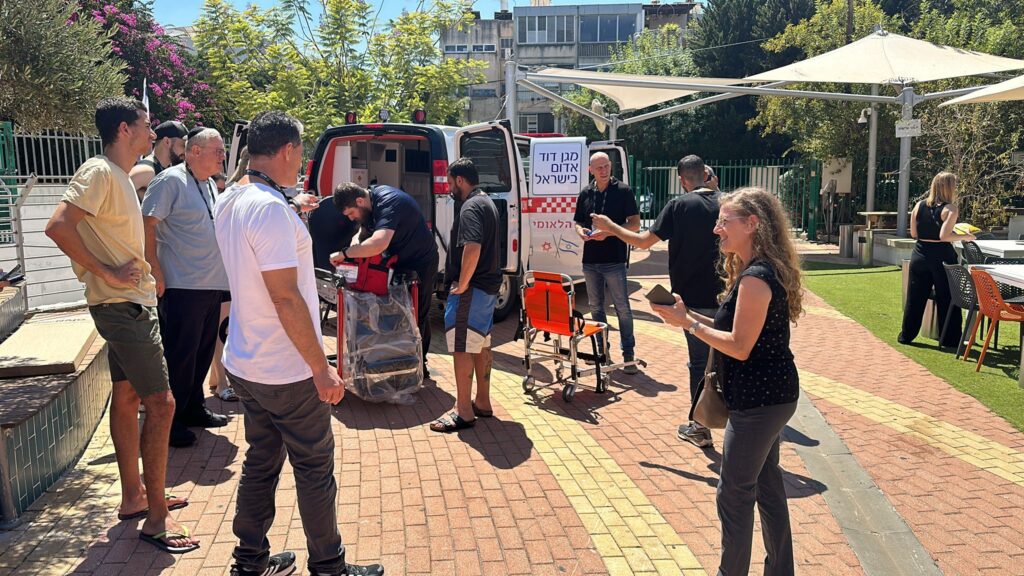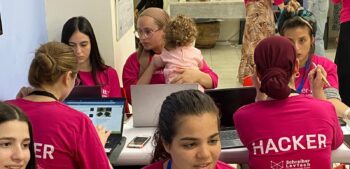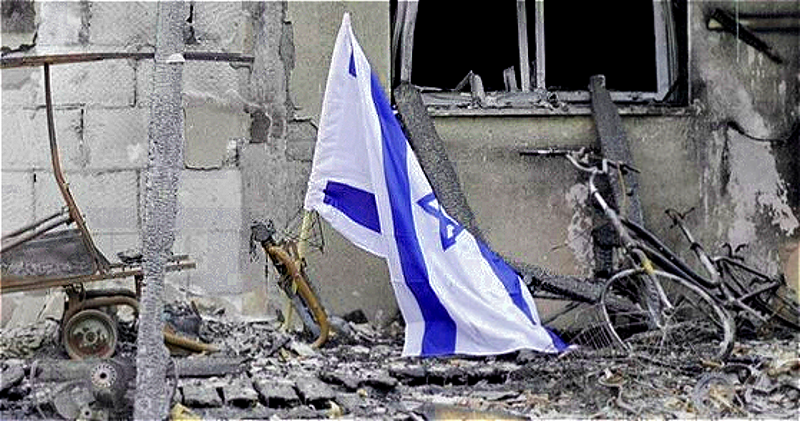One year after the brutal mass attack by Hamas terrorists on southern Israel, and the country is still dealing with the subsequent and ongoing war in Gaza, driving Hezbollah from the northern border, and attacks by Iran and its other proxies in Iraq, Syria and Yemen.
But during the past year, Israelis have displayed the resilience, determination and creativity that has helped them overcome the threats they have faced since the creation of the state in 1948 and for which they have a worldwide reputation.
So too has the national innovation ecosystem risen to the occasion, displaying the same tenacity that earned it the moniker Startup Nation, and using it to rehabilitate the country during the greatest challenge of its 76-year history.
Perhaps in the realest sense of the word rehabilitation, Sheba Medical Center – Israel’s largest and internationally ranked hospital – is developing the most groundbreaking surgical techniques to improve the lives of Israeli veterans who were wounded in the line of duty.
The soldiers underwent what Sheba said were life-changing procedures by Israeli and top global surgeons, with the aim of helping them to reclaim their sense of empowerment and independence.
The foreign surgeons also worked with their Israeli counterparts on these new techniques, in a joint project by Sheba and Brothers for Life, a non-profit organization providing critical and immediate aid to wounded IDF veterans.
The innovative techniques will now be used to operate on IDF veterans such as Sergeant O., who lost his right leg after stepping on an IED during a mission in the West Bank in January, and who has since experienced severe pain due to nerve damage.
Sergeant O. was set to undergo surgery at Sheba to ease the pain, a procedure to be led by Dr. Jason Souza, Director of the Orthoplastic Reconstruction and Advanced Amputation Program at Ohio State University.
“We are humbled and honored to serve those who have served us. It is our duty to help veterans rebuild their lives and enable them to look ahead to a future filled with hope and possibilities,” said Dr. Avi Avitan, head of Sheba’s Outpatient Rehab Clinic.
“Our network of healthcare professionals, including surgeons, physical therapists and prosthetists assists patients along every step towards recovery, providing support in every way possible. They fought their battle on the front line, and now it is our turn to fight alongside them in their journey to recovery and rehabilitation,” he said.
Brothers for Life today works with 2,000 wounded IDF veterans and its co-founder and executive chairman Gil Ganonyan, who was also wounded in battle, anticipates that more veterans will look to the organization for support in the coming months.
“We are fully committed to continuing our vital mission of supporting the physical and mental recovery of our heroes, putting the puzzle pieces back together to build a stronger, more resilient future,” Ganonyan said.
Coping with the wounds of the past year also means healing the mental scars, and Israel’s innovation ecosystem has also been hard at work in this sphere too.
Medical cannabis company SyqeAir – which created the world’s first inhaler with metered doses for pain management – has developed an online questionnaire to recognize early symptoms of post-traumatic stress disorder (PTSD) and recommendations for professional help for anyone suffering from mental distress.

According to the Israeli Center for Suicide Research, the number of Israelis dealing with PTSD has almost doubled in the past year from 16 percent to 30 percent. Furthermore, a survey by the University of Haifa also found that approximately 60 percent of the population not directly affected by the war are experiencing acute stress disorder (ASD), which when left untreated has the potential to develop into PTSD.
Sign up for our free weekly newsletter
SubscribeSyqeAir’s questionnaire asks respondents about their recent emotions and behaviors, and the degree of their intensity, which may reveal symptoms characteristic of PTSD.
The completed questionnaire is analyzed for signs of symptoms characteristic of PTSD. If such signs appear, the respondent is recommended to contact a professional for a full diagnosis and treatment advice.
The questions are based on a self-report survey used by the National Center for PTSD at the US Department of Veterans affairs, which assesses 20 symptoms of post-traumatic stress.
According to SyqeAir, its data shows a 350 percent increase in victims of hostilities being treated with medical cannabis, of which 56 percent are being treated for PTSD.
The data also shows a 150 percent increase in members of the security forces being treated with medical cannabis, of which 57 percent are dealing with PTSD from the ongoing conflict.
“Professional estimates suggest that by the end of 2025, between 1.5 to 2 million individuals may be suffering from post-traumatic stress disorder (PTSD),” said SyqeAir CEO Hagit Kamin.
“Our newly developed digital tool aims to raise awareness about post-traumatic symptoms and offers an early self-identification solution for those in need of help and professional guidance to improve their well-being,” she said.
“Considering the rapid increase in the number of people experiencing PTSD, we recognize the critical need to provide the general public with an initial identification tool to promote awareness and enable individuals to seek treatment as early as possible.”
Young Israelis are also innovating for better medical solutions, with students at Afeka College of Engineering creating new technologies for emergency medical services in the wake of the October 7 attacks.
The top three winning entries were an AI-powered platform to streamline patient medical history, thereby reducing time to treatment; a smart bandage that helps prevent sepsis by detecting an infection based on the changes in a patient’s pH levels; and a drone that can deliver medical equipment to remote areas.
The unique solutions for emergency care were created during the Tel Aviv college’s third annual 24-hour hackathon, and is an issue of great importance to Afeka, which has seen 42 percent of its study body serving in the Israel Defense Forces during the course of the war.

The event, dubbed “the MDAthon,” was held in conjunction with Magen David Adom, Israel’s national rescue service, and included multidisciplinary teams of students and alumni, emergency responders and industry professionals.
“The demand for skilled engineers has never been greater, especially during these critical times,” said Afeka President Prof. Ami Moyal.
“Our students will be the leaders and innovators that drive future success, will drive our economy, and ensure Israel’s continued success on the global stage.”
Related posts

Israeli High-Tech Sector 'Still Good' Despite Year Of War

Innovative Preschool Project Helping Heal Negev Region After October 7





Facebook comments